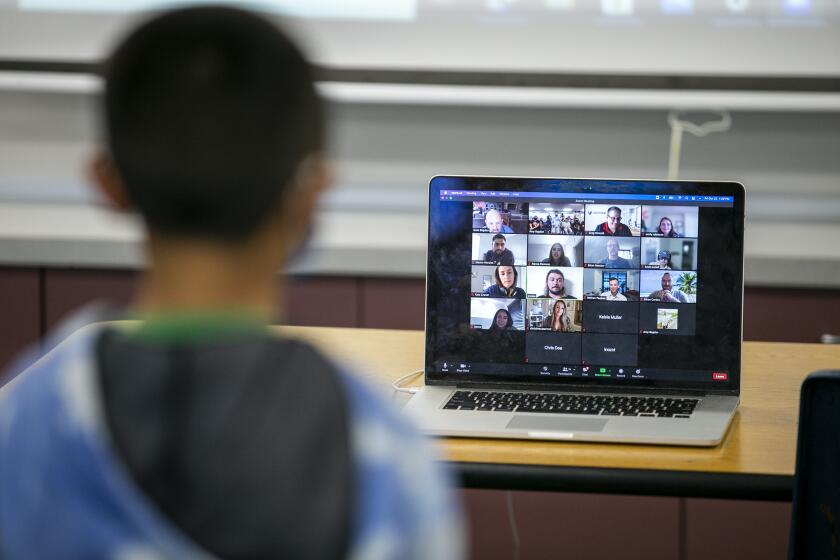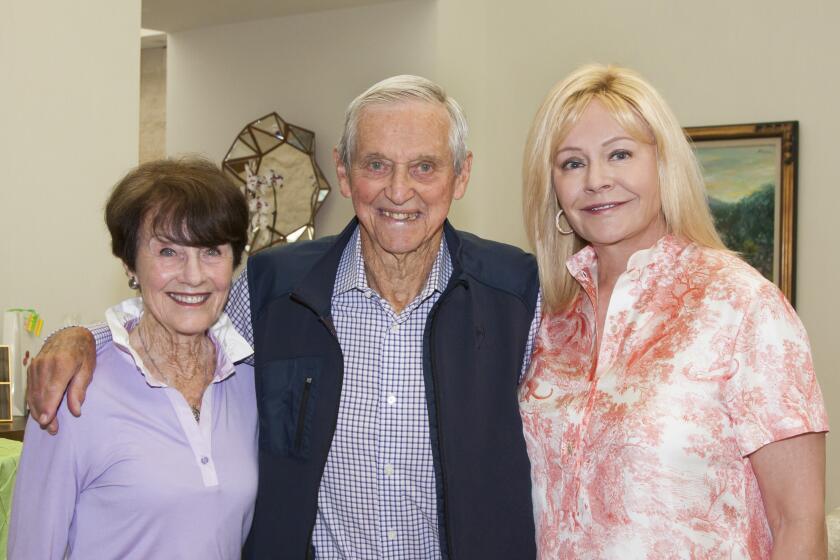A View From The Mesa: Are Costa Mesans too compassionate?
EDITOR’S NOTE: Crissy Brooks, the executive director of MIKA in Costa Mesa, has agreed to do occasional columns for the Daily Pilot. This is her first.
*
In a recent blog post, Councilwoman Wendy Leece asked, “Are Costa Mesans too compassionate?”
Her question came out of the recent conversations about the homeless population in town. Some folks say that our neighbors experiencing homelessness are here because they are drawn by the overly compassionate in Costa Mesa. Others say that people are here for a variety of reasons and we have the privilege and duty to help.
This question of compassion has got me thinking.
The word “compassion” comes from the Latin “com pati,” meaning “to bear with, to suffer with.”
I remember when my father was in the hospital for major brain surgery. Many people came to help us. They brought hams and flowers and said prayers, but the true comfort was the fact they were waiting with us.
There was nothing to do but wait. These friends came and sat in our pain with us. They suffered with us, showed us compassion, and that was a great comfort.
I like the question “Are we too compassionate?” because it brings up our notion of what it means to help. As good Americans, when we see a painful situation our questions usually are, “What can we do? How do we fix this? How can we make things better or right or good?”
These are great questions to ask and motivating to many. But if we are asking these questions before we consider compassion, then maybe we are jumping the gun.
How compassionate are we? What does it mean to suffer with our neighbors? How have we had to bear with the pain of one another? What is the pain that people in our city suffer?
I am not suggesting that we do nothing. Sitting around in pain together for long periods of time would turn us into a very sad people. But it would also turn us into a compassionate people.
And maybe, just maybe, the answers to the question “What can we do?” would come easier and more clear — once we understood the pain and had trust with those experiencing it.
Understanding that pain, and winning the trust of those experiencing it, is easier said than done. It’s hard to step into a family’s home in a motel room on Harbor Boulevard or to sit down to eat lunch with someone at the soup kitchen on 19th Street without being reminded of our own pain.
The questions come even faster to mind and are more confusing when we drive by a day laborer at 7-Eleven:
“What would I do in that situation? How come I didn’t end up like that? What would’ve happened if I had been caught that time when … “
Or perhaps what comes to mind are not questions at all, but statements that reveal the reality of our judgment:
“Thank God that’s not me. I would never be in that situation. I would do this or get myself together or work harder.”
To suffer with another means we have to suffer ourselves. No wonder we just want to fix things.
But fix things for whom? For our city? For ourselves? For those experiencing the pain?
I don’t believe that every attempt to help is helpful. There are lots of bad ways to help that create resentment in the “helper” and the “helped.”
A lot of help can make things worse. I do believe, however, that when those we seek to help are first of all our friends, then there is a lot of grace and space to dream and plan how to fix things together.
Perhaps our best ideas to help and to fix will come not from the strategy sessions around conference tables but will spring out of our compassion.
Perhaps they will come about when we have the courage to suffer with another.
CRISSY BROOKS, a lifelong Costa Mesa resident, is the executive director and co-founder of MIKA. She lives on the city’s Westside and is active in community service. She can be reached crissy@mikacdc.org.
All the latest on Orange County from Orange County.
Get our free TimesOC newsletter.
You may occasionally receive promotional content from the Daily Pilot.



